This post is also available in: ![]() English
English ![]() Français (French)
Français (French)
Introduction
The choice of the cultivation substrate for the farmer is crucial in order to have good yields while controlling its operational costs.
An efficient substrate must meet the needs of the head grower. For example, the aeration % of the material, its water retention capacity %, the control of its pH, its durability and also its biodegradability… are important parameters to consider before selecting a growing medium.
In this article we will see a short presentation of the two substrates and a comparison of their main properties.
Coco peat
We already have presented the advantages of coco fibers in the article below on the blog:
In short, coco coir is a renewable and affordable product with a very high efficiency.
Quality coco substrate is a durable and soft growing medium for plants that easily replicates the environment of normal soil. Moreover, based on recent studies coco peat growing medium deters fungal gnats and foliar diseases common of greenhouse crops.

It is an ideal choice for crops grown in commercial greenhouses, Controlled Environment Agriculture (CEA) and hydroponic facilities.
Rock wool
Rock wool (also called stone wool) is also a common substrate in the industry.
This growing medium is made from spinning molten basaltic rock into fine fibres which are then formed into a range of cubes, blocks, growing slabs and granular products.

Source: Fine Homebuilding
In fact, it is a non-renewable manufacturing process that can be impacted by rising energy costs. One of the main advantage of this industrial is consistency, rock wool is a very standardized product. It is a “peace of mind” argue for the grower.
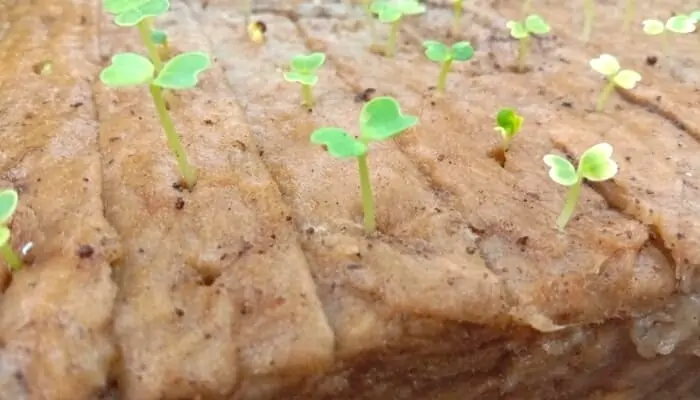
Rockwool is also a durable growing medium with a high water retention.
However, its pH can become slightly basic and affect the growth of the plants if not monitor and corrected. The choice of this substrate may therefore require a little more attention from the head grower.
Coco coir or rock wool ?
We have seen the characteristics of the two substrates. We will now compare both medium material on different criteria:
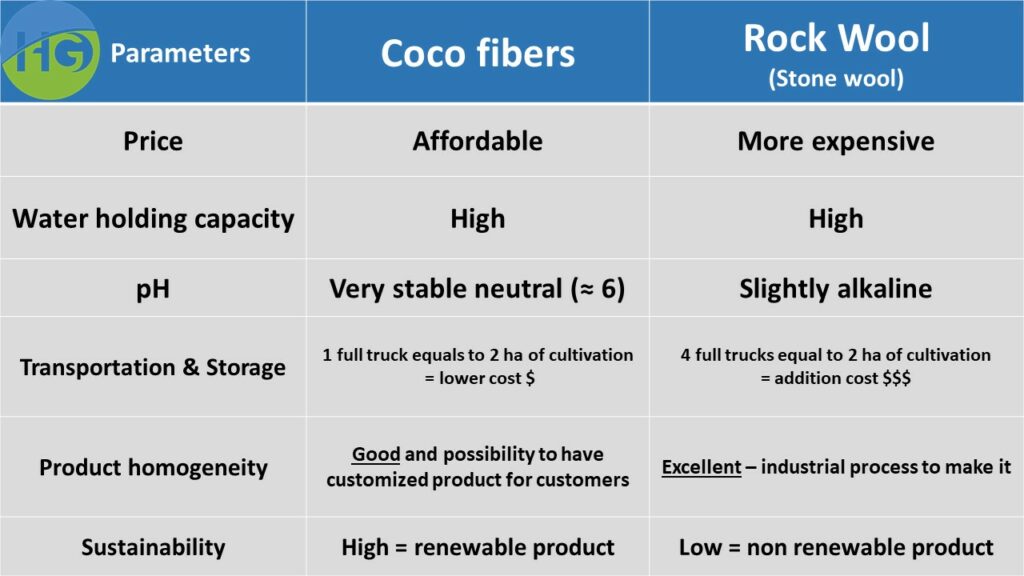
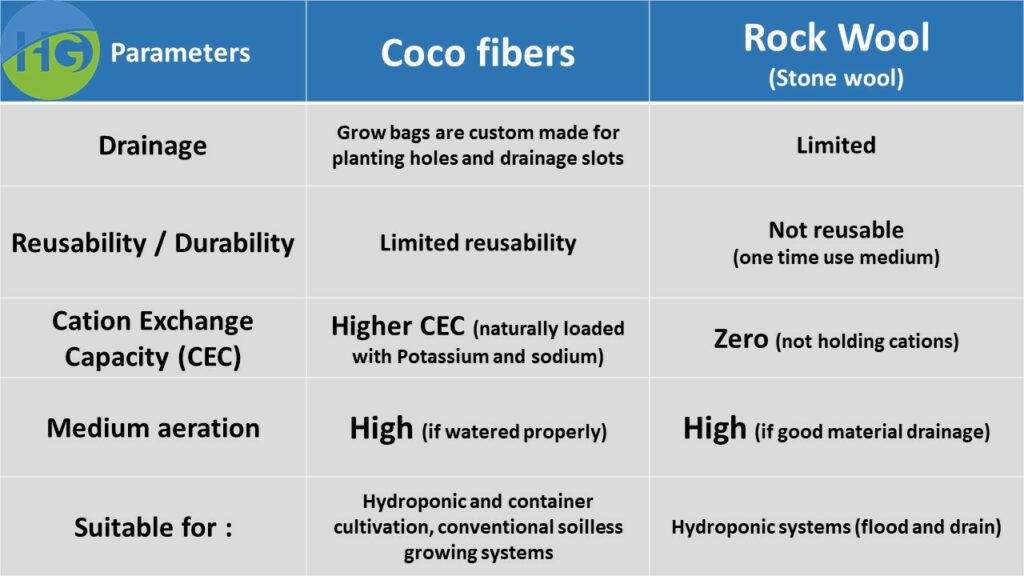
Conclusion
Both products are widely used in soilless agriculture because of their excellent properties.
In short, from a technical point of view, both products have recently expanded their ranges to have a panel of substrates from the most retentive to the most draining. The coco fibers, thanks to the development of mixtures based on chips and crush to be more draining, has come closer to the rock wool. In the other hand, the rock wool has come closer to the coco coir with fibers arranged differently to improve water retention.
In addition, rockwool has been very successful in accompanying the development of soilless cultures. But today, we see the evolution of the cultures out towards techniques more and more respectful of the environment (integrated biological protection, zero residues of pesticides, durable…), and the fiber of coconut seems to answer advantage to this evolution.
In the future, we see more advantages in term of medium cost, agronomic performance, transportation… and above all sustainability using coco fibers.
Sources:
D. Bek, M. L. Turner (May 19, 2021) Peat compost to be banned – luckily, green alternatives are just as good for your garden. https://theconversation.com/peat-compost-to-be-banned-luckily-green-alternatives-are-just-as-good-for-your-garden-160315
How To Use Rockwool Cubes In Hydroponics Gardening:
https://www.urbanorganicyield.com/rockwool-cubes/
Rockwool vs. Coco Coir: Which is the Best Option?
https://hydroponiccapital.com/rockwool-vs-coco-coir-which-is-the-best-option/
What’s the difference? Coco coir vs rockwool writen by RF Agriculture
https://www.mmjdaily.com/article/9102892/coco-coir-vs-rockwool/
Sustainability comparison of Coconut coir, Peat moss and Rockwool:
https://lucky-plants.com/sustainability/
Xiong J, Tian Y, Wang J, Liu W, Chen Q. Comparison of Coconut Coir, Rockwool, and Peat Cultivations for Tomato Production: Nutrient Balance, Plant Growth and Fruit Quality. Front Plant Sci. 2017 Aug 2;8:1327. doi: 10.3389/fpls.2017.01327. PMID: 28824665; PMCID: PMC5539188.
https://www.ncbi.nlm.nih.gov/pmc/articles/PMC5539188/
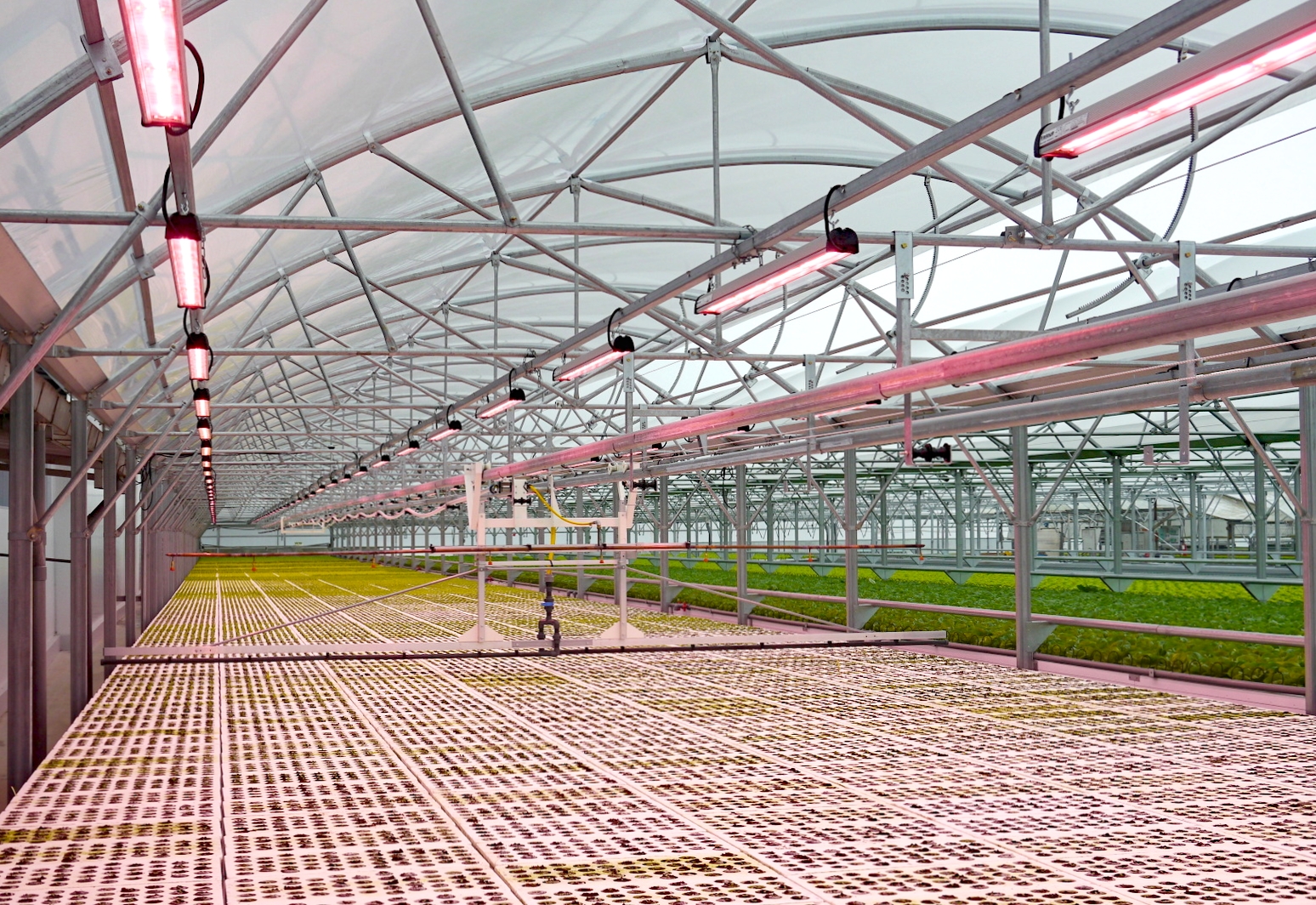


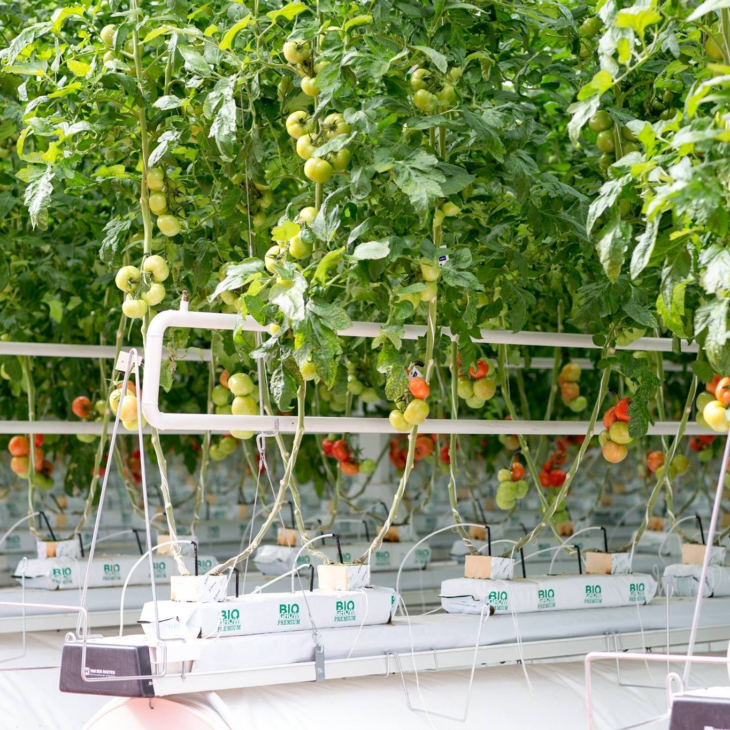
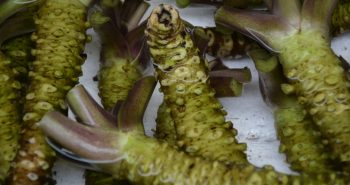

That’s a very good paper Corenthin.
Well, coir pith is indeed a very good growing media but the mix of coco chips along with coir pith is definitely not the right thing to do.
During the grow-bag manufacturing process, It’s extremely difficult to obtain homogeneous grow-bags when mixing chips of 10 mm size with coir pith particles which range from 0.5 to 3 mm. One can observe an heterogeneous distribution of chips in the grow bag and most important , from one grow-bag to the other one. Hence drainage capacity turns out to be really different in each grow-bag.
At the end of the day, the person in charge of irrigation is breaking his head to achieve a good water monitoring.
If the grow-bag manufacturer is doing a serious job and removes all fine particles during the sieving process then the result is just outstanding.
A well manufactured grow-bag without addition of coco chips can be used up to 7 years but obviously that might be not in the best interest of the manufacturer.
Today, the Agro-CF4 quality by INTRADIX is definitely the best product on the market….without any addition of chips !
Terry (manufacturer of grow-bags since 1999)